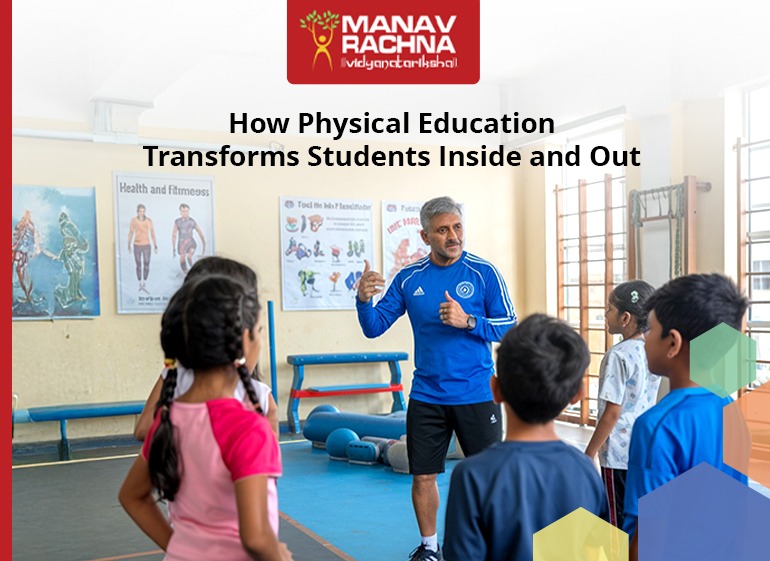Think of a school day without any movement: just students sitting in classes hour after hour, minds working but bodies not moving. Now, contrast that with an upbeat physical education class that breaks up those long hours. Physical education brings in a fresh burst of energy and time to stretch, run, and play; it’s also an important way to learn. So, let’s delve into why physical education in schools is important and why it is beneficial for both body and mind. Physical education lays the base for good behaviour among students from a tender age. Most health problems associated with adulthood, such as obesity, heart disease, and diabetes, could easily be prevented simply by engaging in daily exercise. Physical education classes initiate kids into various kinds of sports and activities, making health and fitness a part of daily life. It is also not solely about one class but about learning skills and habits that students can take into their lives beyond school. PE is not all about running or playing football. Through different activities, students develop their basic motor skills, such as coordination, balance, and flexibility, that could be useful in everyday life, like carrying a school bag or going up the stairs or riding a bicycle. The kids become stronger, faster, and more nimble from the physical fitness gained from these PE lessons. It’s one avenue to make them fit and acquainted with their body’s capabilities. Besides, training in fitness in schools doesn’t mean heavy exercise. Some simple activities like stretching, light running, or yoga can strengthen the child a lot and make them more flexible. These are things they can easily do without special equipment, even at home. The training is also gentle, corresponding to a child’s age, thus keeping them safe and not straining growing bodies. Did you know physical activity can actually make people feel happier? Exercise releases chemicals called endorphins — often referred to as “happy hormones.” These chemicals reduce stress, improve mood, and can even help with better sleep. With students constantly dealing with stress and competition in the form of studies, exams and other things, PE classes act as a mental break, giving some much-needed relief. Positive social interaction would also be fostered by physical education, improving mental well-being. The aspects of playing in a team, learning to encourage, and celebrating victories-even small ones — develop a sense of belonging among participants. This social aspect can be a strong buffer against stress and will improve the mental health of students in general. A PE class is often a child’s first instance where a sense of teamwork is learned. Group sports and activities teach students to interact with one another, communicate effectively, and work together as individuals toward a specific objective. This is indeed a powerful lesson for adulthood. Also, for many children, PE classes are an opportunity to make new friends and build social skills in a relaxed environment. They get to interact with students from different classes or grades or with shared interests. This is an important interaction in forming friendships, as well as socialising and working with people of varying backgrounds, skills, and strengths. PE can also contribute to improved academic performance. Generally speaking, students who are physically more active have proven to perform above average in school. After a session in physical education, students feel refreshed for other academic subjects with a clear mind. In a country like India, where academics are kept above everything else, physical education can be considered an asset and not a distraction. In fact, regular exercises can help students keep their concentration during studies, alleviate stress, and absorb information more effectively. Far from taking away the time from academics, PE actually supplements and helps build more all-around learners. Physical education instils discipline in people – a very substantial factor that is important not only in sports but also later in life as a whole. To give an example, a person learning a sport needs to be practising day in and day out, being devoted and willing to get better. So in physical education, they make small goals for themselves: running a bit faster, lifting a bit more, improving a skill. And achieving those small goals teaches them the value of hard work and commitment. This discipline and practice of setting goals gets carried over into academics and personal life. Students understand that success does not come easily, but rather, it is achieved with work, and they can get better with persistence and practice. This understanding will be greatly helpful for reaching academic goals, managing time, and balancing various responsibilities. PE brings balance into the life of a student. With today’s orientation toward academics and heavy study loads that children endure, physical education provides a very welcome counterbalance by allowing the child the pleasures of movement. It teaches them that to be well, there needs to come balance and also that a healthy lifestyle is not complete without mental and physical development. It also teaches children a very important thing: that success is not all about studies and achievements; it’s about feeling good in their own skin, being strong, and truly taking care of their bodies. Physical education tends to foster a more holistic view of health that surpasses test scores and classroom learning. Physical education, while sometimes thought of as simply a break in the academic day, continually plays a vital role in the process of educating any student, impacting both body and mind. From teaching healthy habits to improving fitness, enhancing social skills and confidence, and even furthering academic performance, PE contributes to well-rounded students. It lays the foundation for a healthy, active lifestyle that the students can carry with them long after their school days.Why is Physical Education Important in Schools?

Building Healthier Habits Early
Enhancing Physical Fitness and Motor Skills
Boosting Mental Health and Reducing Stress
Encouraging Teamwork and Social Skills
Improving Academic Performance
Teaching Discipline and Goal Setting
Promoting a Balanced Lifestyle
Conclusion

